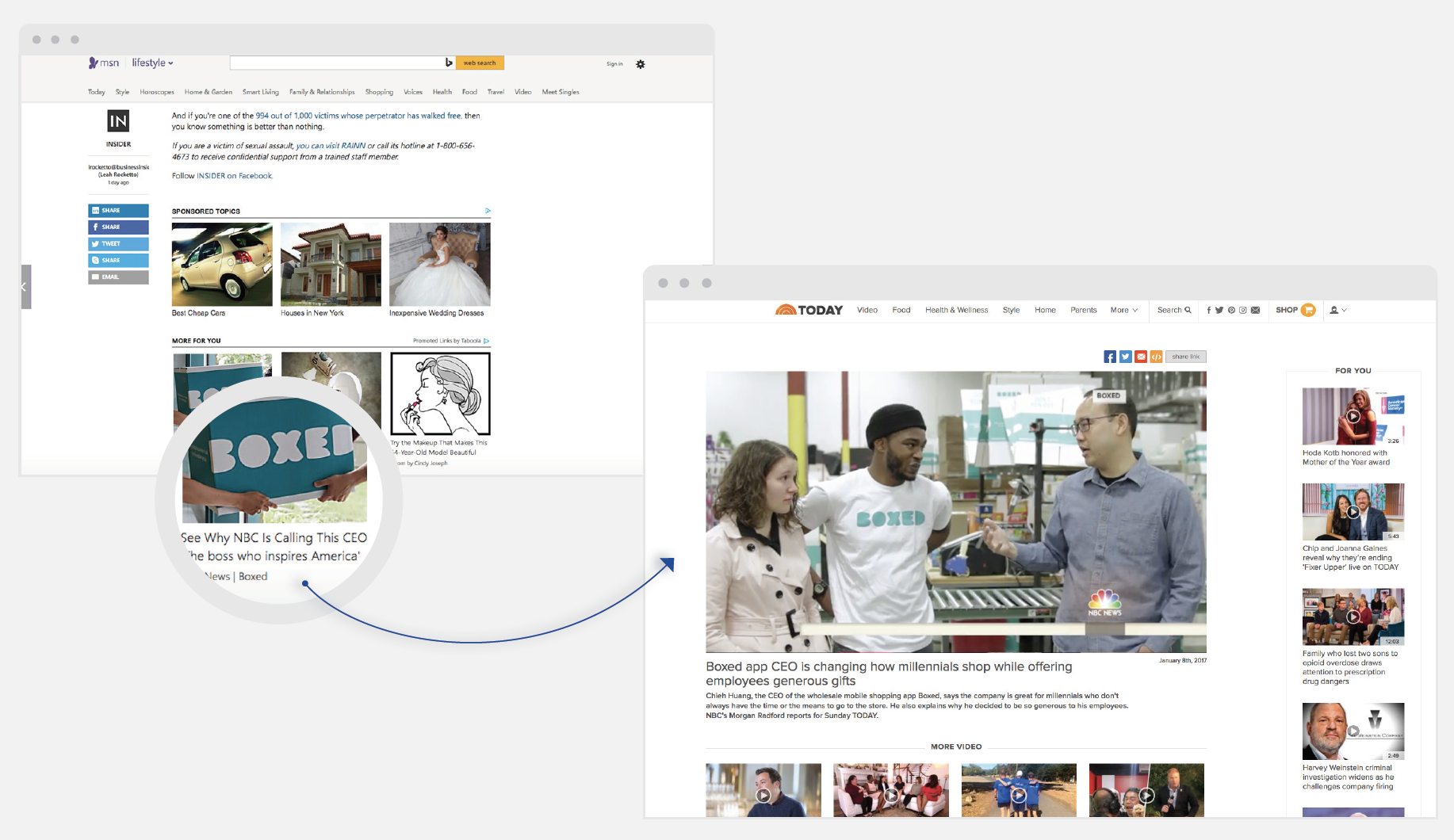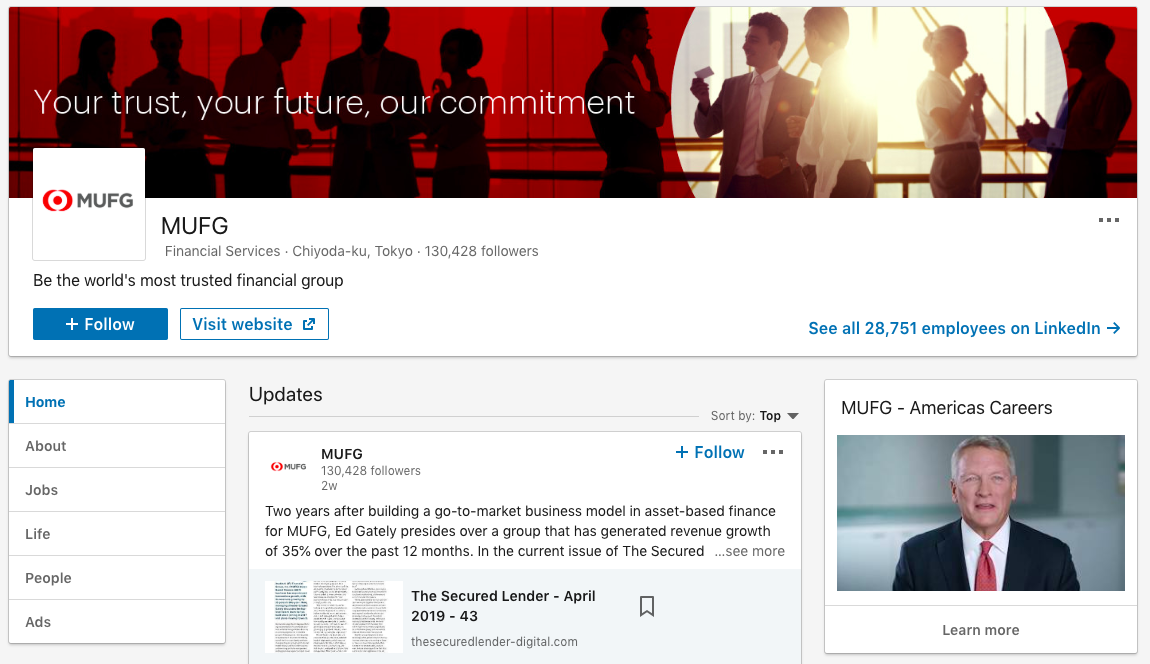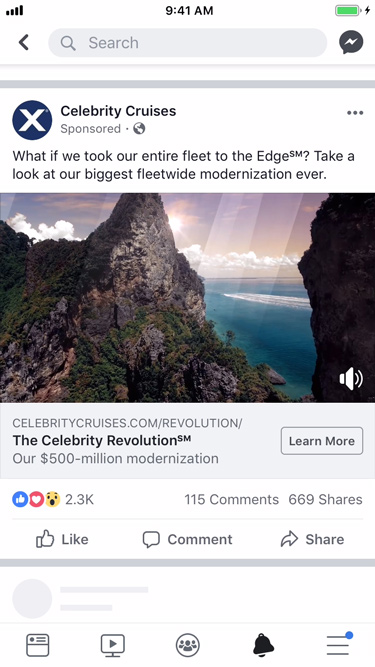Marketers know that they need to build brand awareness. According to the US-based Content Marketing Institute, building brand awareness has been a top goal for B2C and B2B marketers for years.
Still, you shouldn’t just invest in brand awareness because everyone else is doing it. To achieve your business goals, you must have a firm grasp of the importance of brand awareness and how you can use it.
Here we guide you through the main advantages of brand awareness — and explain why a lack of brand awareness can really drag your business down.
Why is Brand Awareness Important?
Brand awareness is important because it is the very first step in the marketing funnel, and a crucial foundation to eventually acquire customers. Brand awareness refers to people’s ability to recall and recognize your business. There are several reasons why it is important to build and increase brand awareness.
To start, brand awareness helps keep your brand top-of-mind with your audience. If people know your brand, they can become familiar and comfortable with it. Then, when faced with a decision to buy from you or your competitor, they are more likely to buy from you.
Brand awareness also helps you to achieve a range of business objectives and goals. It can expand your audience, increase website traffic, build brand affinity, and cultivate leads.
It will be no surprise to learn that brand awareness lies at the top of the marketing funnel. Brand-awareness campaigns cast a wide net. They let many people know about what you have to offer, and nurture those who are most interested in it.
The Advantages of Brand Awareness
Beyond the reasons listed above, there are many benefits to improving brand awareness and investing in awareness strategies to boost your business and diversify your marketing operation.
Let’s take a look:
Advantage–Increase Market Share and Sales
Brand awareness is often the first step to driving performance-marketing goals, such as leads and sales. Make people more aware of your brand — especially by targeting relevant, high-quality audiences — and you increase your chances of generating conversions and dominating your market.
Here are three brand awareness examples to illustrate how brand awareness affects sales.
- Shoes of Prey Increases Sales by 300%
Women’s shoe company Shoes of Prey wanted to build brand awareness and reach new audiences. The retailer tapped YouTube influencer and beauty vlogger Blair Fowler to host a giveaway on her channel and help spread the word.

The video generated 750,000 views, 15,000 comments, and coverage from publications such as The Wall Street Journal and Business Insider. Crucially, thanks to this influencer partnership, Shoes of Prey increased its sales by 300%.
- Boxed.com Drives Over 1,400 Sales
After receiving media coverage on The Today Show, e-commerce site Boxed.com wanted to ride this wave of attention and increase brand awareness online. Boxed worked with digital advertising platform Taboola to promote its TV clip through native advertising. As a result, the brand drove over 1,400 sales and saw a 3.18% increase in conversions, just from that one piece of content.

As this brand awareness case study shows, if Boxed hadn’t taken this opportunity to invest in brand awareness, it risked limiting its reach and missing out on a big pool of new customers.
- Ralph Lauren Increases Sales by 18%
Fashion brand Ralph Lauren wanted to build brand awareness among global millennial audiences for its 50th anniversary collections. The brand worked with Instagram and Facebook to launch in-feed video ads and Instagram Stories showcasing its products.

Not only did Ralph Lauren drive brand awareness in markets across the world, but the brand also increased online sales by 18% and saw a 7.1-fold return on ad spend.
Advantage–Scale in New Places
You can use brand awareness campaigns to scale your content and messaging across new channels—reaching new audiences and feeding the top of the funnel from a variety of platforms.
Say you’re active on social media. You might try supplementing your social outreach with search advertising and SEO. Or, you might try launching sponsored social posts that promote your products and messaging to target audiences. Twitter, for example, provides an ‘awareness campaign’ template you can use to target your preferred audience.
Alternatively, if you’ve hit a wall with the Facebook/Google duopoly and are looking to reach new audiences, you can use native advertising to find millions of readers and video viewers on the open web. You can also reach entirely new audiences by using strategies such as influencer marketing and guest posting. These strategies allow you to tap into someone else’s owned audience in exchange for content that you create, payments, or free products.
Remember also to keep your eye out for new channels that you can tap into early on. Five years ago, for example, podcasting burst onto the scene, and major brands, such as GE, Marriott, and IBM, quickly launched their own branded series. Right now, technologies like virtual reality and augmented reality are still gaining traction among brands and audiences, and providing opportunities for experimentation with awareness campaigns.
Ultimately, investing in brand awareness will open doors for your business that you never knew existed. And, it can expose you to channels and audiences with the power to re-energize your marketing operation.
Advantage–Improve Brand Perception
Brand awareness campaigns don’t just help more people know about your business; they can also change how people think about your business — contributing to overall brand affinity and brand loyalty.
Mitsubishi UFJ Financial Group, for example, wanted to build brand awareness and improve brand perception among global business leaders outside of Japan. To this end, the company launched a LinkedIn campaign of content. This drove a 12% increase in brand familiarity among Hong Kong and Singapore audiences, and a 7% increase in familiarity among US audiences.

Similarly, the Dominican Republic Ministry of Tourism wanted to improve brand favorability among U.S. travelers. So the brand partnered with Taboola to launch a promotional video campaign across its publisher network. The result was an 18.9% increase in brand favorability—17.7 points higher than the industry average.
Advantage–Acquire Audience Data
By casting a wide net with a brand-awareness campaign, you can collect a valuable set of data about your audience and potential buyers. With these insights at your fingertips, you can create unique audience segments, devise retargeting strategies, and optimize for future campaigns.
According to a study by Accenture, 91% of consumers are more likely to buy from brands that offer personalized recommendations. A study from Segment also found that 49% of customers made spontaneous purchases after receiving personalized recommendations. Brands can provide these personalized, targeted experiences with data they gather from brand-awareness campaigns. Amazon, for example, famously uses customer data to provide relevant and customized product recommendations to online shoppers.

Brand awareness data is also critical for launching retargeting campaigns. Celebrity Cruises, for example, launched a brand-awareness video campaign on Facebook to promote the redesign of its ships. The cruise line then retargeted only people who watched the video with a new campaign directing them to the company’s landing page. As a result of this optimization, Celebrity Cruises saw a 23-fold return on ad spend.

With a lack of brand awareness data, you could miss out on crucial audience interests and behaviors. And you risk wasting your budget on inefficient strategies and misguided brand awareness objectives.
Harnessing the Power of Brand Awareness
You know you need to invest in brand awareness. Now you can understand and articulate why. Brand awareness lies at the foundation of your company’s growth and your audience’s understanding of your value.
Whether you’re looking to promote new products or tap into new audiences, it’s crucial to know that brand awareness is not just about generating increased traffic and engagement; it has the power to drive sales, fuel new business opportunities, and unearth audience insights that can transform your marketing operation for the better.